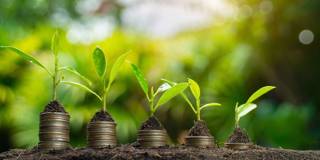With governments around the world having already injected some $9 trillion into the economy, there can be no doubt that the COVID-19 pandemic has ushered in a new era in which public policy will play a larger economic role than seemed imaginable just a few months ago. How should governments embrace the opportunity?
GENEVA – Last year, the World Economic Forum’s annual Global Competitiveness Report assessed 141 governments’ future-readiness and found that most rated poorly on this and other crucial long-term indicators. Yet now that the pandemic-induced lockdown is wreaking havoc on the global economy and exposing the inadequacies of many institutions, an era of bigger – and perhaps bolder – government has arrived.
Already, an estimated $9 trillion has been pumped into the global economy to support households, stem job losses, and keep businesses afloat. Now that some countries are beginning to emerge from lockdowns, their leaders have a unique opportunity to reshape the economy to provide better, greener, and more equitable outcomes for all.
The crisis offers an opportunity for what the World Economic Forum has deemed the “Great Reset,” starting not at some point in the distant future but right now. Building on the lessons learned during the 2008 financial crisis and its aftermath, many governments are attaching a range of meaningful conditions to bailouts and other rescue measures. The short-term assistance being provided today can and should be leveraged to encourage more responsible business practices, save jobs, address inequality and climate change, and build long-term resilience against future shocks.

GENEVA – Last year, the World Economic Forum’s annual Global Competitiveness Report assessed 141 governments’ future-readiness and found that most rated poorly on this and other crucial long-term indicators. Yet now that the pandemic-induced lockdown is wreaking havoc on the global economy and exposing the inadequacies of many institutions, an era of bigger – and perhaps bolder – government has arrived.
Already, an estimated $9 trillion has been pumped into the global economy to support households, stem job losses, and keep businesses afloat. Now that some countries are beginning to emerge from lockdowns, their leaders have a unique opportunity to reshape the economy to provide better, greener, and more equitable outcomes for all.
The crisis offers an opportunity for what the World Economic Forum has deemed the “Great Reset,” starting not at some point in the distant future but right now. Building on the lessons learned during the 2008 financial crisis and its aftermath, many governments are attaching a range of meaningful conditions to bailouts and other rescue measures. The short-term assistance being provided today can and should be leveraged to encourage more responsible business practices, save jobs, address inequality and climate change, and build long-term resilience against future shocks.